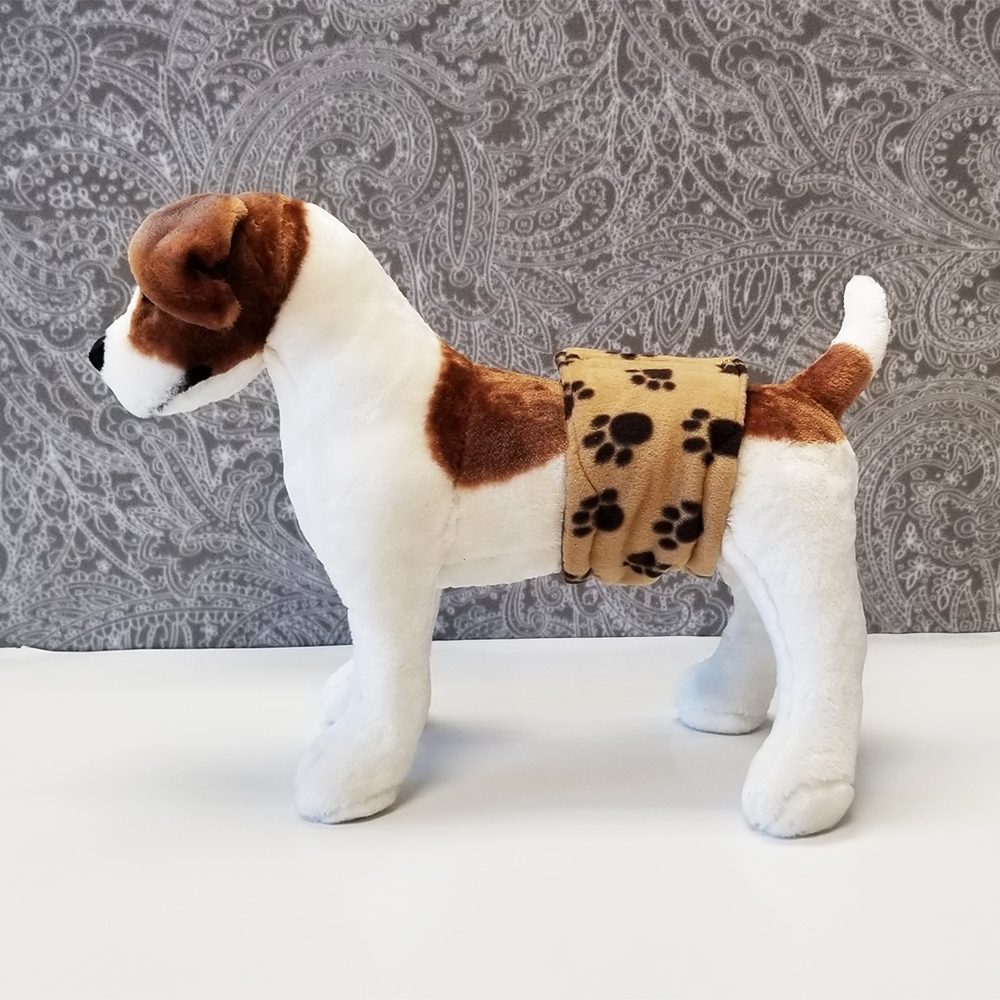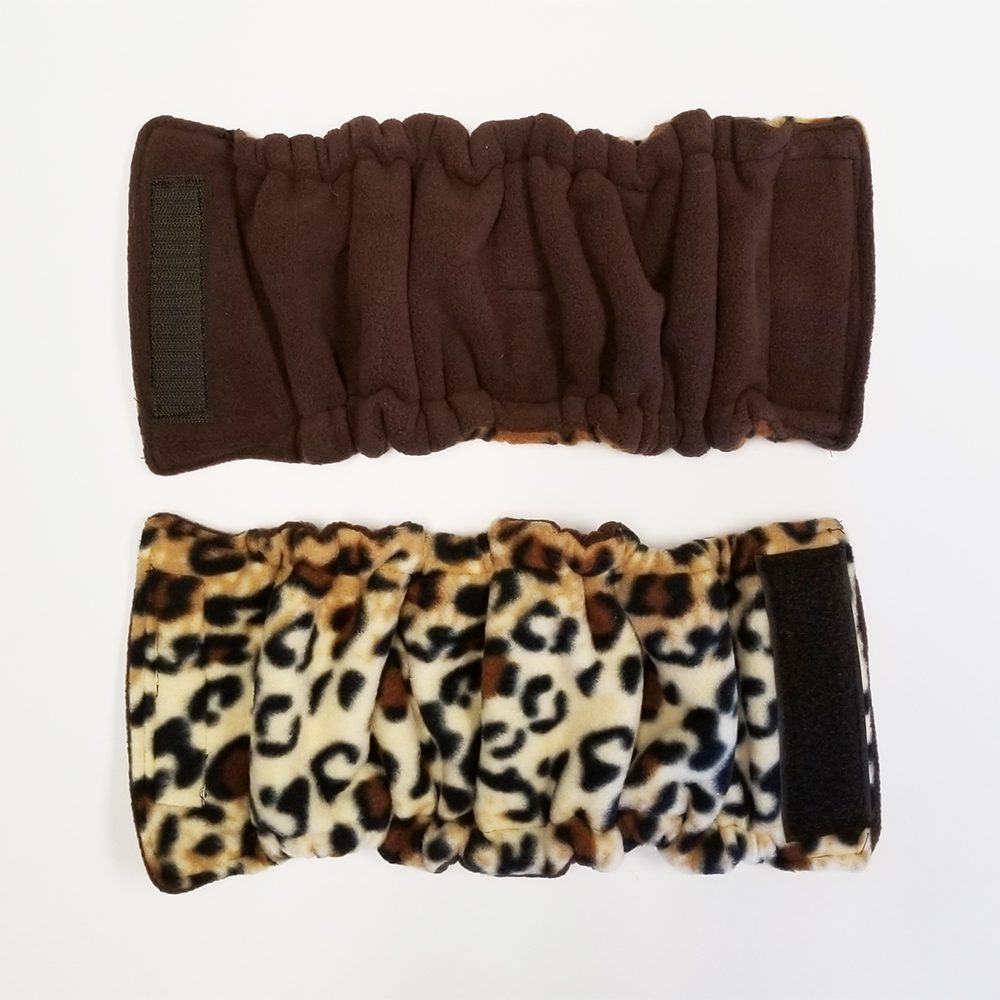Bernese Mountain Dog
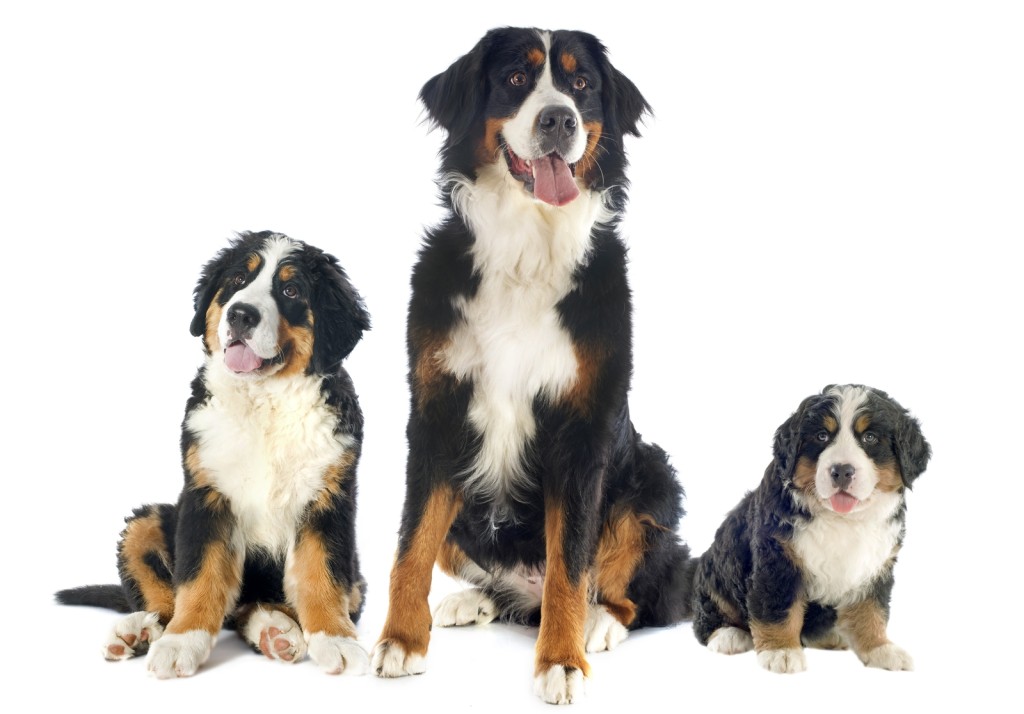
Bernese Mountain Dog: The Gentle Giant of the Swiss Alps
Welcome to the comprehensive guide on the Bernese Mountain Dog, a breed renowned for its majestic appearance, gentle temperament, and strength. Explore the world of the Bernese Mountain Dog, a dependable and affectionate companion.
Overview
AKC Height: 23-27.5 inches
AKC Weight: 70-115 pounds
Colors: Jet black with rust and clear white markings, with symmetry of markings desirable. Rust appears over each eye, on the cheeks reaching to at least the corner of the mouth, on each side of the chest, on all four legs, and under the tail. There is a white blaze and muzzle band.
Life Expectancy: 7-10 years
Group: Working Group
__________________________________________
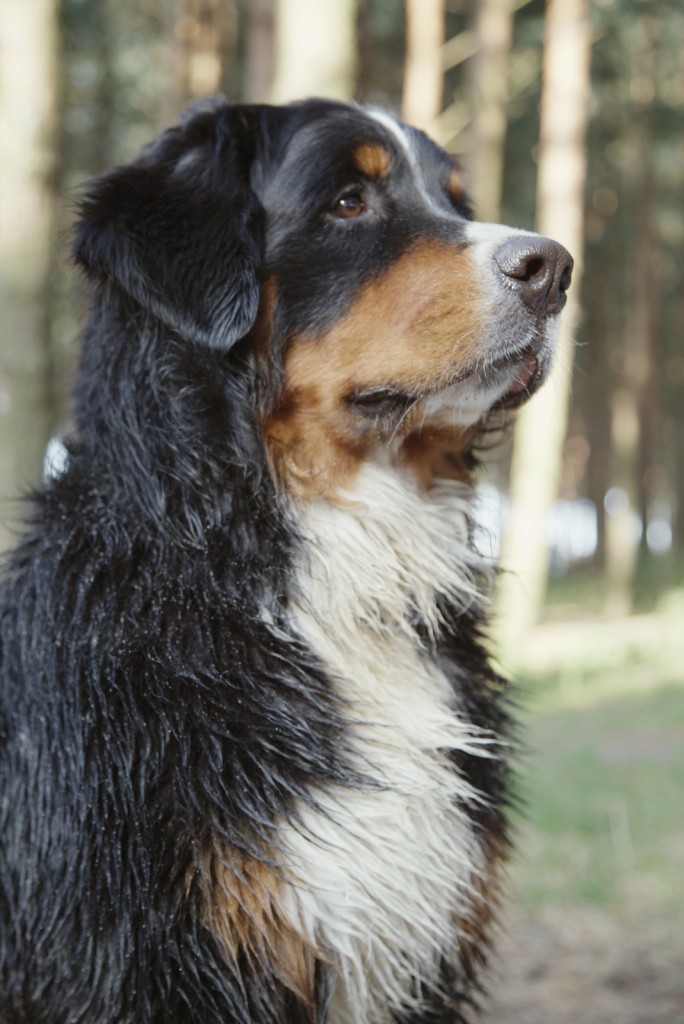
Physical Characteristics
- Striking Appearance: Bernese Mountain Dogs are known for their large size, tricolor coat, and distinctive markings. They have a thick, long coat, primarily black, with rich rust and white markings.
- Robust Build: They possess a strong, sturdy build, suitable for their original work in the Swiss Alps.
Temperament and Personality
Bernese Mountain Dogs are known for their calm, friendly, and affectionate nature. They are loyal to their families and gentle with children, making them excellent family pets. Despite their size, they often have a serene and composed demeanor.
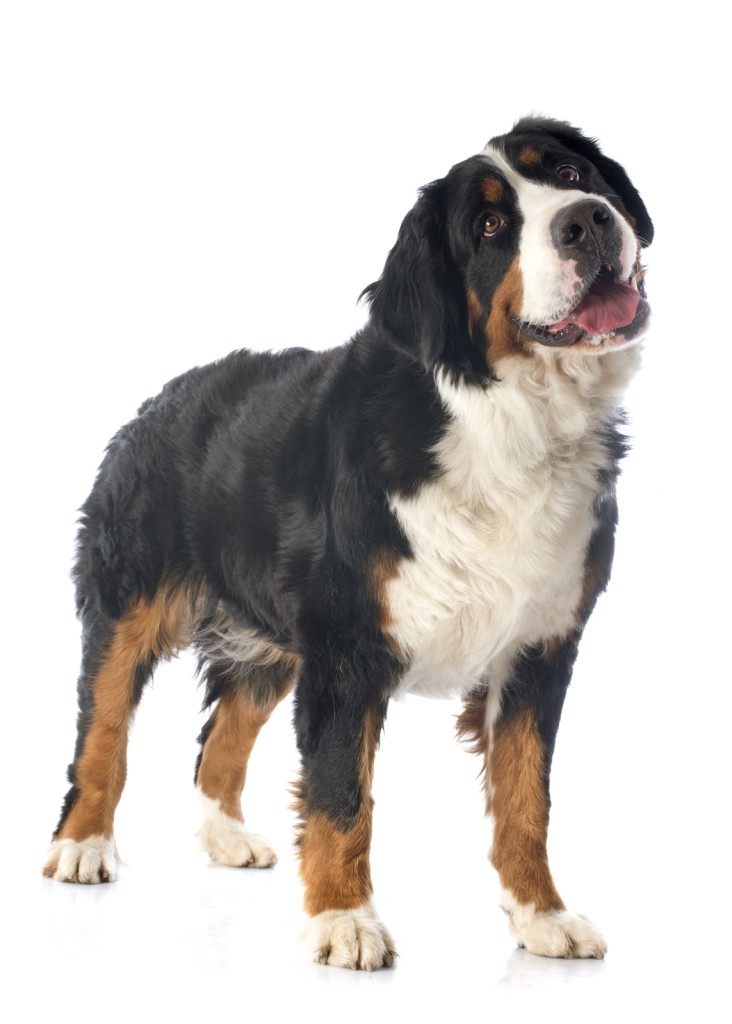
Training and Exercise Needs
- Training: They are intelligent and eager to please, which makes them responsive to training. Consistency and positive reinforcement are key.
- Exercise: Moderate exercise is sufficient for them. Regular walks, play sessions, and the opportunity to roam in a secure area are ideal.
- Mental Stimulation: Mental engagement is important to keep them happy. Puzzle toys and basic obedience training can provide this.
Health and Nutrition
- Diet: A balanced diet appropriate for large breeds is essential. It’s important to monitor their food intake as they can be prone to obesity.
- Health Issues: Generally healthy, they can develop hip dysplasia, Osteochondritis Dissecans (OCD), PRA, hip/elbow dysplasia, Bernese Mountain Dog Syndrome (BMD), hypothroidism, Histiocytic Sarcoma. Regular health screenings and check-ups are important. Dog Health Dictionary
Grooming and Care
- Coat Maintenance: Their thick coat requires regular grooming to prevent matting and to manage shedding.
- General Care: Routine health care practices like dental hygiene, nail trimming, and ear cleaning are crucial.
Living with a Bernese Mountain Dog
- Family Life: Bernese are well-suited to family life and typically get along well with other pets.
- Adaptability: They adapt best to homes where they have space to move around, and are prepared for colder climates due to their thick coat.
- Companionship: They form deep bonds with their owners and thrive on being part of family activities.
Responsible Ownership and Adoption
- Selecting a Breeder: Choose a breeder who prioritizes health and temperament and provides health clearances for their puppies.
- Adoption Options: Consider adopting from shelters or breed-specific rescues, which can be a rewarding way to find a Bernese Mountain Dog in need of a home.
.
Conclusion: The Bernese Mountain Dog, with its impressive size, gentle nature, and striking appearance, makes a wonderful addition to a loving family. Their loyalty, affection, and calm demeanor make them a cherished companion in any home.
Housebreaking
PUPPY HOUSEBREAKING tips: https://www.dog-breeds.net/puppy-housebreaking/
ADULT MARKING AND RETRAINING tips: https://www.dog-breeds.net/dog-housebreaking-marking-page/


